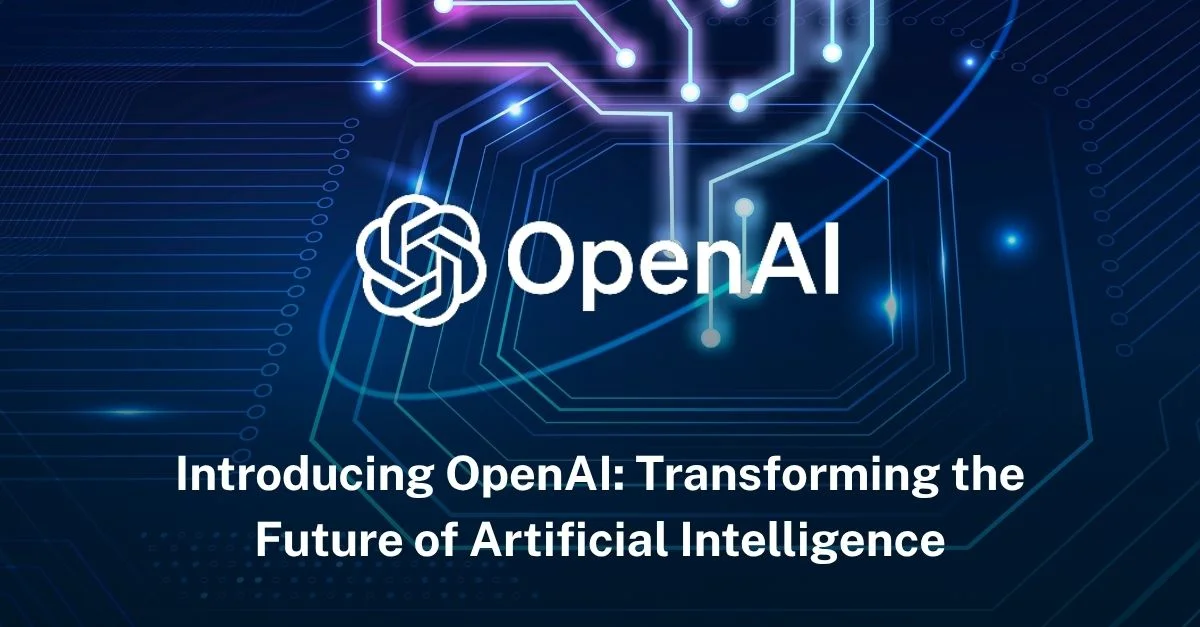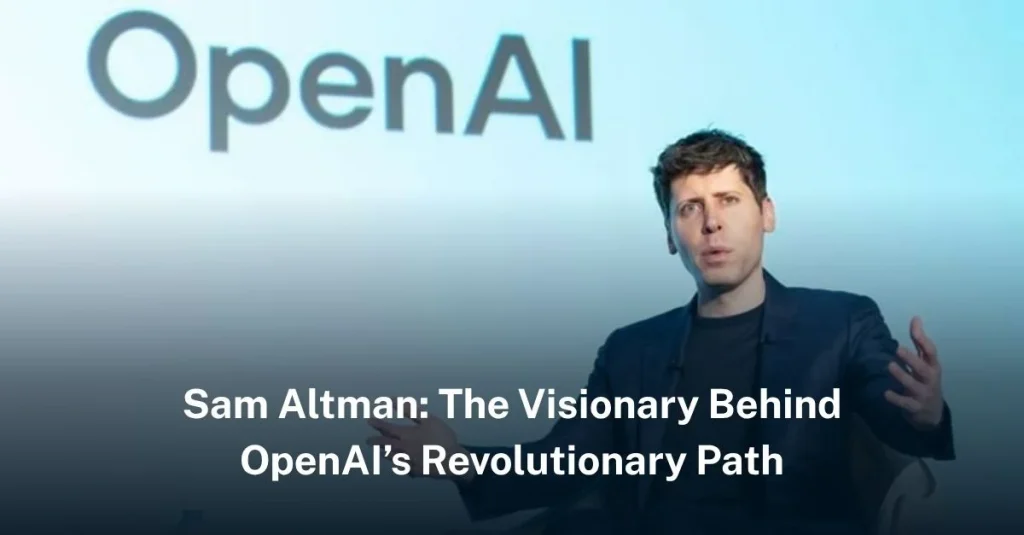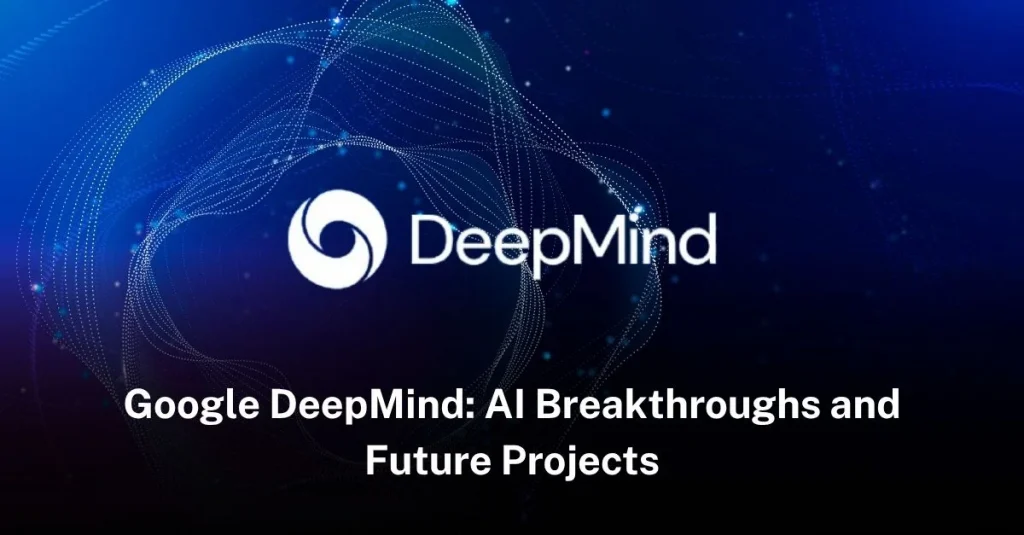OpenAI is a leading artificial intelligence research and deployment company that aims to ensure that artificial general intelligence (AGI) benefits all of humanity. Founded in December 2015 by tech visionaries including Elon Musk, Sam Altman, Greg Brockman, Ilya Sutskever, Wojciech Zaremba, and John Schulman, OpenAI has been at the forefront of innovation in AI technology.
Headquartered in San Francisco, California, OpenAI has grown into a globally recognized institution that combines cutting-edge research with real-world applications.
The organization was established to advance digital intelligence as ethically and beneficially as possible. By prioritizing transparency, collaboration, and societal impact, OpenAI aims to bridge the gap between groundbreaking AI advancements and their practical uses in everyday life.
OpenAI’s Business Model
OpenAI’s business model is as unique as its mission. Initially founded as a nonprofit, OpenAI transitioned to a “capped-profit” model in 2019. This structure allows the organization to attract significant investment while ensuring that the benefits of its AI developments remain focused on the public good.
The capped-profit model works by limiting the returns investors can earn while reinvesting the remaining funds into further research and development. OpenAI LP, the profit-seeking entity, operates under the oversight of OpenAI’s nonprofit board to maintain ethical and socially conscious practices. This hybrid model enables OpenAI to sustain its research endeavors while remaining committed to its mission.
Where Does OpenAI Operate?
OpenAI’s influence spans across the globe. Its headquarters in San Francisco serves as the hub for its research and development activities, where some of the world’s top AI scientists and engineers collaborate. Additionally, OpenAI’s technologies are accessible worldwide through its cloud-based platforms and integrations with major tech companies.
OpenAI partners with businesses, institutions, and governments globally, making its tools and expertise available to a diverse range of users. From tech startups leveraging AI for innovation to large enterprises optimizing operations with AI models, OpenAI’s reach is extensive and ever-expanding.
How OpenAI Makes Income and Operates
OpenAI generates revenue primarily through licensing its cutting-edge AI technologies and offering access to its models via subscription-based services. Here’s a closer look at its income streams:
-
API Access: One of OpenAI’s key revenue channels is its API, which allows developers to integrate advanced AI capabilities, such as Natural Language Processing (NLP) and machine learning, into their applications. Businesses subscribe to this service to enhance customer experiences, automate processes, and drive innovation.
-
Partnerships: OpenAI collaborates with tech giants like Microsoft, which has invested heavily in the organization. Microsoft’s Azure cloud platform powers many of OpenAI’s solutions, and the partnership also includes co-developing AI tools and systems.
-
Licensing: OpenAI licenses its technology to companies, enabling them to build custom solutions or embed AI functionalities in their products. This includes GPT models, DALL·E, and Codex, among others.
-
Enterprise Solutions: OpenAI offers tailored AI solutions for enterprises seeking to revolutionize operations through automation and data-driven insights. These solutions are often bespoke and cater to specific industry needs.
Operationally, OpenAI emphasizes a rigorous research-driven approach. Its teams are divided into specialized groups focusing on areas like reinforcement learning, robotics, natural language processing, and ethical AI. This collaborative structure ensures that OpenAI stays ahead of industry trends while addressing the ethical and societal implications of AI development.
Why OpenAI Succeeds: Its Value to the World
OpenAI’s success lies in its ability to balance innovation with responsibility. Here are some key factors that contribute to its achievements:
Commitment to Ethical AI: OpenAI has been a pioneer in advocating for responsible AI development. Its emphasis on transparency and collaboration with governments and institutions has set an industry standard for ethical practices.
Cutting-Edge Technology: OpenAI’s breakthroughs, such as the GPT series, DALL·E, and Codex, demonstrate its unparalleled ability to push the boundaries of what AI can achieve. These innovations are transforming industries from healthcare and education to entertainment and finance.
Accessibility: By making its tools available through APIs and cloud platforms, OpenAI ensures that its technologies are accessible to businesses of all sizes. This democratization of AI empowers innovation across sectors.
Global Partnerships: Strategic alliances with organizations like Microsoft have amplified OpenAI’s impact, providing the resources and platforms necessary to scale its technologies globally.
Visionary Leadership: Guided by leaders like Sam Altman, OpenAI’s strategic vision ensures that it remains focused on its mission while navigating the complexities of a fast-evolving industry.
Conclusion
OpenAI has emerged as a trailblazer in the AI space by staying true to its mission of ensuring that AGI benefits all of humanity. Through its innovative business model, global reach, and commitment to ethical practices, OpenAI continues to set benchmarks for what is possible in AI development.










Leave a Reply